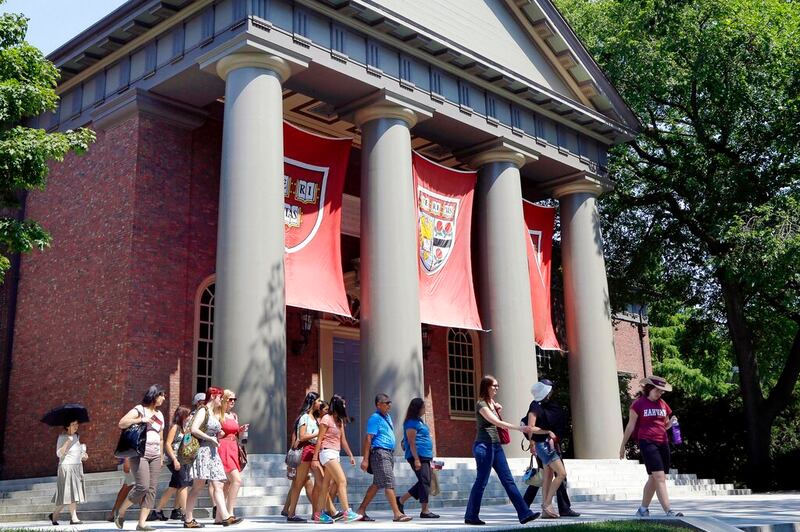In an attempt to reckon with the past, Harvard University published a detailed report of its ties to slavery.
Driving the news: To begin redressing the wrongdoings, the school has pledged $100 million to create an endowment called the Legacy of Slavery Fund, which will help match the report’s recommendations of “teaching, research, and service,” Harvard President Lawrence Bacow said Tuesday.
What they’re saying: “Harvard benefited from and in some ways perpetuated practices that were profoundly immoral,” Bacow said in a statement.
- “Consequently, I believe we bear a moral responsibility to do what we can to address the persistent corrosive effects of those historical practices on individuals, on Harvard, and on our society,” Bacow said.
- “Slavery and its legacy have been a part of American life for over 400 years. The work of further redressing its persistent effects will require our sustained and ambitious efforts for years to come,” he said.
Details: The 134-page report, conducted by members of the Harvard faculty, was published two years after Bacow formed the Presidential Committee on Harvard and the Legacy of Slavery.
In the list of recommendations included, Harvard will make an effort to:
- Improve educational opportunities for the descendants of Black and Native American enslaved people.
- Create partnerships with Black colleges and universities.
- Honor those who were enslaved through memorials, research and through classroom teaching.
- Forge partnerships to improve schools in the South as well as the West Indies.
A few highlights: The report captured everything from financial and educational ties to personal stories. Here are a few takeaways:
- Enslaved people worked and lived on the university campus for over 150 years, starting from the university’s founding in 1636 until 1780, when the Massachusetts Constitution made it unlawful.
- Prominent Harvard affiliates, including five Harvard presidents, owned slaves. The list involves 70 others who were donors or leaders during the 17th and 18th century.
- While tracking finances in the first half of the 19th century, the report found that most of the money they received “came from just five men who made their fortunes from slavery and slave-produced commodities,” the report stated.
- Back then, Harvard leaders and scholars promoted intellectual theories “rooted in racial hierarchy.”
Between the lines: Although the $100 million funding is unprecedented for an educational institution, the school’s report avoids direct financial reparations for those who are descendants of the enslaved.


